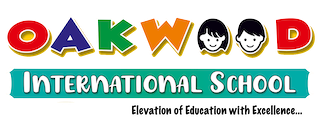Early childhood education often focuses on learning through play, based on the research and philosophy of Jean Piaget, which posits that play meets the physical, intellectual, language, emotional and social needs of children. Children’s curiosity and imagination naturally evoke learning when unfettered. Learning through play will allow a child to develop cognitively. Thus, children learn more efficiently and gain more knowledge through activities such as dramatic play, art, and social games.
Early childhood education encompasses a wide range of developmental areas and skills that are crucial for young children. Here are a few key subsets of early childhood education:
- Cognitive Development: This subset focuses on fostering children’s thinking, problem-solving, and decision-making abilities. It includes activities that promote language development, pre-reading skills, numeracy concepts, logical reasoning, and creativity.
- Social and Emotional Development: This subset emphasizes the development of social skills, emotional intelligence, and self-awareness. It includes activities that encourage cooperation, empathy, communication, conflict resolution, self-regulation, and building positive relationships with peers and adults.
- Physical Development: This subset focuses on promoting children’s physical well-being, fine and gross motor skills, and coordination. It includes activities that enhance motor skills, body awareness, balance, strength, and overall physical fitness.
- Language and Literacy Development: This subset is centered around developing children’s language skills, vocabulary, listening comprehension, and early literacy abilities. It includes activities such as storytelling, reading aloud, phonics instruction, vocabulary building, and early writing experiences.
- Play-Based Learning: Play is a fundamental aspect of early childhood education. This subset recognizes the importance of play in fostering children’s imagination, creativity, problem-solving, social skills, and cognitive development. Play-based learning activities include free play, structured play, pretend play, and hands-on exploration.
- Sensory and Motor Development: This subset focuses on engaging children’s senses and enhancing their sensory perception and motor skills. It includes activities that stimulate the senses through sensory play, art activities, music, movement, and outdoor exploration.
- Cultural and Global Awareness: This subset emphasizes exposing children to diverse cultures, traditions, and perspectives. It includes activities that promote understanding, respect, and appreciation for different cultures, languages, and customs.
It is important to note that these subsets of early childhood education are interconnected and often overlap. Early childhood educators incorporate various strategies and approaches to create a well-rounded and developmentally appropriate learning environment for young children.
Many oppose the theory of learning through play because they think children are not gaining new knowledge. In reality, play is the first way children learn to make sense of the world at a young age. As children watch adults interact around them, they pick up on their slight nuances, from facial expressions to their tone of voice. They are exploring different roles, learning how things work, and learning to communicate and work with others. These things cannot be taught by a standard curriculum, but have to be developed through the method of play. Many preschools understand the importance of play and have designed their curriculum around that to allow children to have more freedom. Once these basics are learned at a young age, it sets children up for success throughout their schooling and their life.

